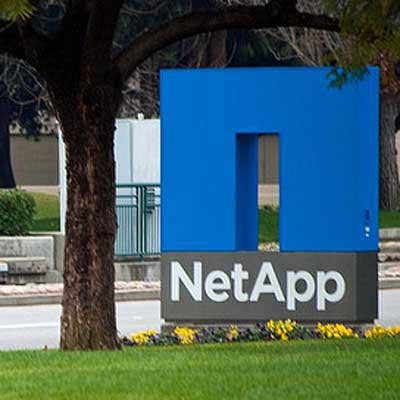NetApp Acquires StackPointCloud, Enhances Cloud-Native Capabilities With Kubernetes-As-A-Service

NetApp is continuing its transformation from a storage vendor wrapped with cloud tools to a provider of multi-cloud, cloud-native capabilities with the acquisition of StackPointCloud.
NetApp on Tuesday unveiled the acquisition of StackPointCloud, a developer of multi-cloud Kubernetes-as-a-service and a contributor to the Kubernetes project. The Sunnyvale, Calif.-based vendor plans to combine the StackPointCloud technology with its own cloud data services technology as a complete DevOps offering.
That offering, called NetApp Kubernetes Service, will give NetApp a complete multi-cloud Kubernetes platform as part of a complete cloud stack for Azure, Google Cloud, Amazon Web Services, and NetApp HCI hyper-converged infrastructure, the company said.
[Related: NetApp's All-Flash Storage Array Sales Take Crown From Dell EMC]
StackPointCloud is now part of NetApp's Cloud Data Services business unit.
Terms of the deal were not disclosed and NetApp executives were unavailable to provide further information by press time.
However, Anthony Lye, senior vice president and general manager of that business unit, wrote in a Tuesday blog post that the acquisition of StackPointCloud came about initially because of a need for his organization to have a better way to do devops on Azure, AWS, and Google Cloud.
NetApp has been developing for all three public clouds, but developers can get slowed down when doing so in order to sync the releases of new capabilities for all three, Lye wrote. This requires building multiple services on multiple code lines, build and deploy software that can be run as a service and on multiple clouds, and build microservices while maintaining Kubernetes clusters on those clouds.
"I have the build part working well. … However, we were really struggling with the deploy and manage bit. My teams were burning too many cycles deploying services to multiple clouds and putting together release strategies for each cloud independently of one another," he wrote.
Because Kubernetes offers an open approach to deploying containers across multiple clouds, NetApp wanted a SaaS-based platform for deploying and managing Kubernetes clusters on public clouds, and found StackPointCloud's stackpoint.io technology, which Lye wrote significantly increased the company's developers' productivity.
"Because the developers love stackpoint.io so much after our testing, I bought the company. It’s just that good.. so good that I want to build it and make it available to everyone! It’s great for one developer or even thousands. It’s pure Kubernetes, deploys on the clouds, has GitHub integration, has all the networking figured out, supports A/B testing, canary and blue-green needs," he wrote.
The acquisition is yet another proof point that NetApp has completely changed how a storage vendor approaches public clouds, said John Woodall, vice president of engineering at Integrated Archive Systems, a Palo Alto, Calif.-based solution provider and long-time NetApp partner.
"Try to tell me who else is doing this in their space," Woodall told CRN.
NetApp historically was a traditional hardware infrastructure-focused company like many of its competitors, but under its new leadership has in the past year become the leader in flash storage and divided itself into three forward-looking business units, Woodall said.
The first, NetApp's Storage Systems and Software business unit, is led by Joel Reich, executive vice president of product operations, and includes the company's storage arrays. The Cloud Infrastructure business unit, under Senior Vice President and General Manager Brad Anderson, focuses on converged and hyper-converged infrastructure, NetApp SolidFire all-flash arrays, and NetApp StorageGRID object-based storage. The third is Lye's Cloud Data Services business unit, and focuses on developing NetApp's Data Fabric technology.
It is also important to realize that, while NetApp has had a spotty record with acquisitions, its last three--StackPointCloud, PlexiStor, and Greenqloud--are all software companies with significant impacts, Woodall said.
"The Cloud Data Services business unit under Anthony Lye has been acting like a real software company and a real cloud company," he said. "A real example of a devops-based cloud organization. The cadence of innovation has been is increasing, and will grow even faster."
NetApp is not a storage company with a wrapping of software, Woodall said.
"It's NetApp looking to make the consumption of storage easier," he said. "The cloud business is growing as a segment for NetApp. NetApp is putting itself in the position that, if you have cloud-native applications, it provides cloud-native ways to store the data."
It is a bold move for NetApp, Woodall said.
"They're not locking customers into NetApp storage unless the customers want really great storage," he said. "They're giving control over when and where customers want to deploy cloud-native apps. Customers may want to deploy on Google, but then migrate to Amazon but use some other cloud to manage it."
NetApp Kubernetes Services is already available from NetApp, which charges for the services a small percentage of what is deployed with no upfront licensing costs or contracts needed.